

President Donald Trump visited Hawaii on 3 November 2017.
Photo/The White House
US climate policies, WHO withdrawal and aid freeze: What do they mean for the Pacific?
Political analyst Tess Newton Cain says Donald Trump's exit from the Paris pact, WHO defunding, and aid suspension present significant challenges for the United States in the Pacific as a 'trusted friend'.


‘A man so full of love’: Fepulea’i awarded comedy Topp Prize
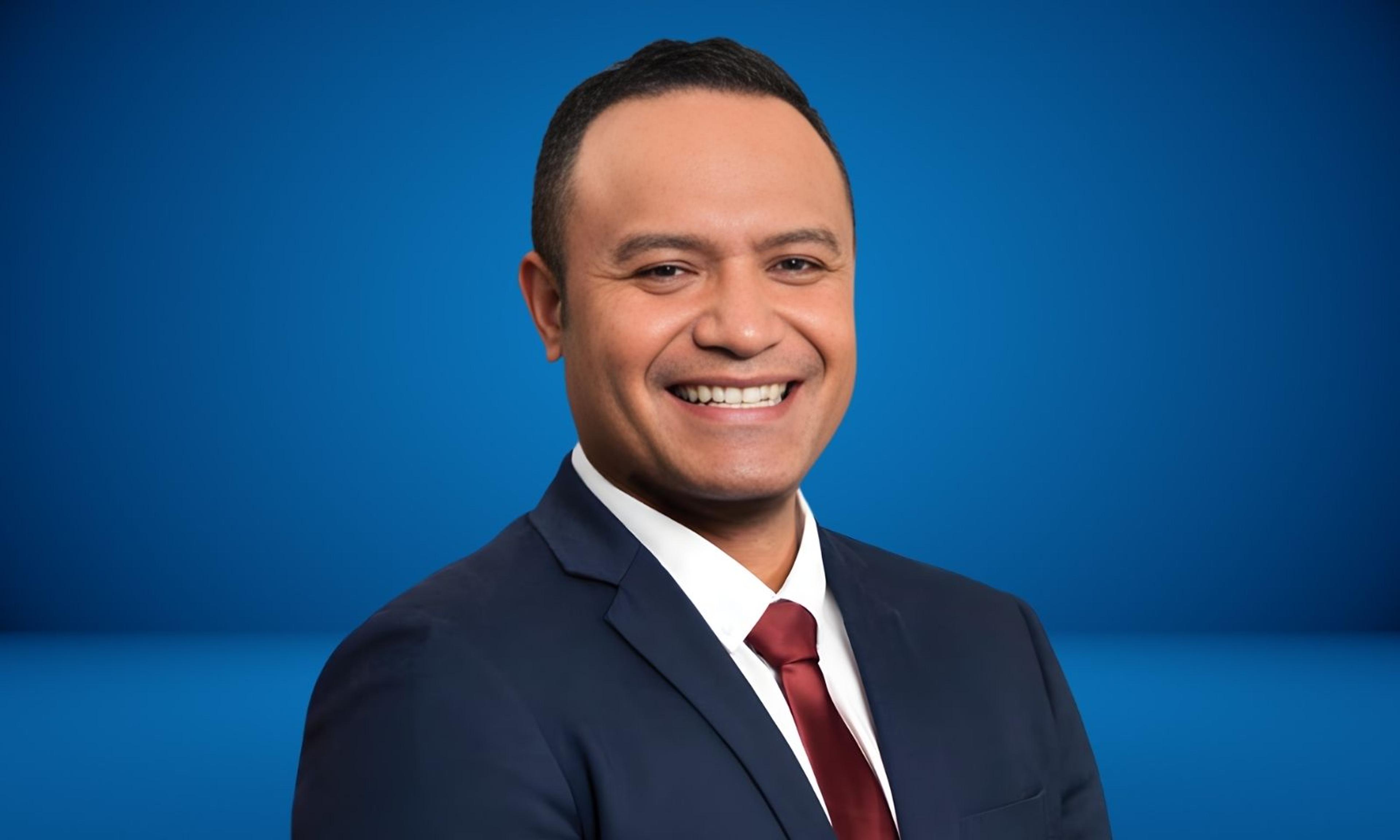
Pacific health leaders warn cancer surge looms: ‘Early action cannot afford to wait’
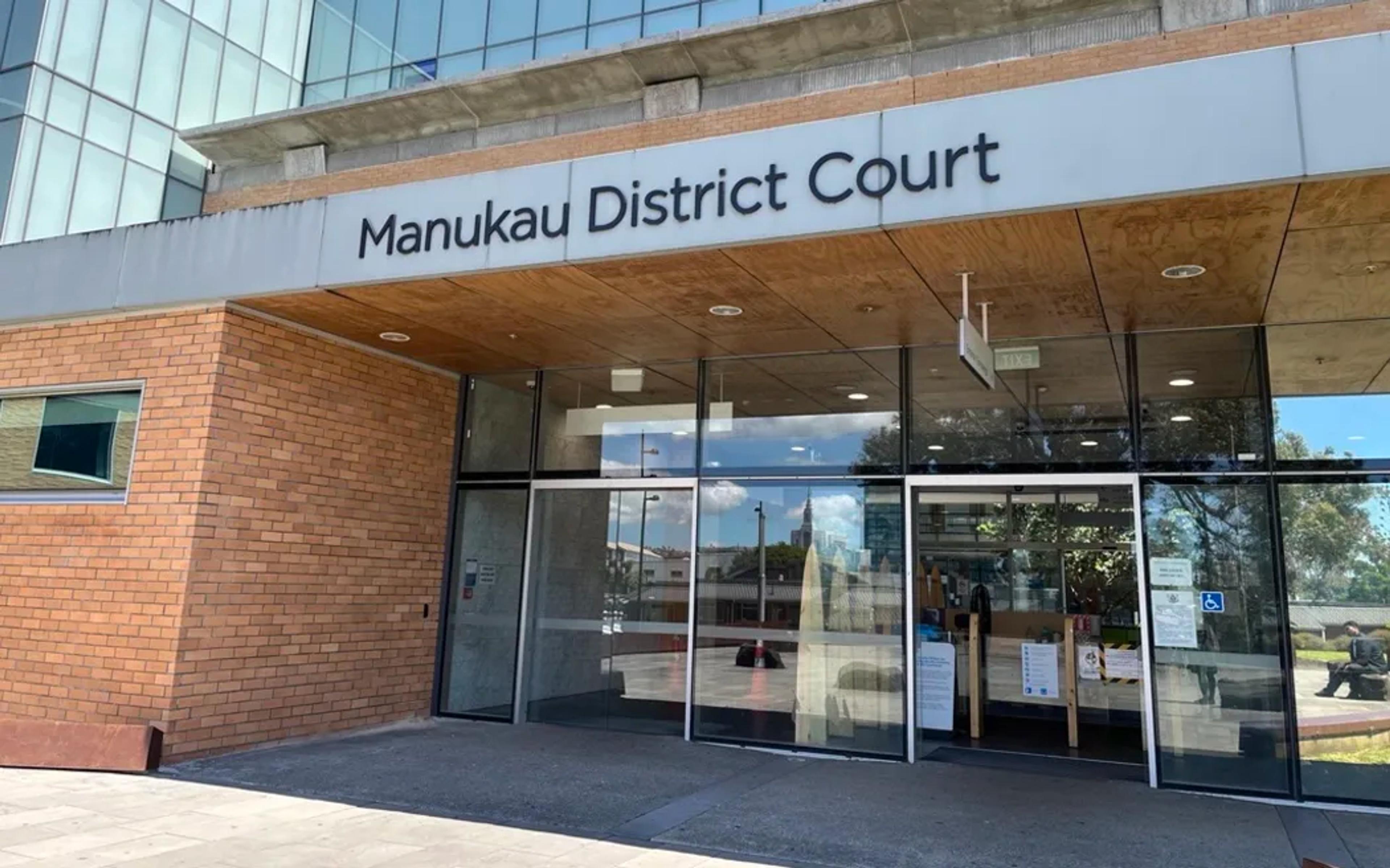

US warns Fiji over human trafficking concerns linked to Grace Road Group

‘A man so full of love’: Fepulea’i awarded comedy Topp Prize

Pacific health leaders warn cancer surge looms: ‘Early action cannot afford to wait’

A leading expert on Pacific politics and foreign affairs says it's not surprising that President Donald Trump signed executive orders to withdraw from the Paris Climate Agreement and the World Health Organisation.
The Paris Agreement, signed in April 2016, represents the world's main effort to address the impacts of the climate crisis, which Trump has called “unfair” and a “rip-off”.
But Tess Newtown Cain, Australian consultant and academic, says Trump's immediate suspension of US international aid has "compounded the impact beyond what was imagined possible".
"Of course, he took the US out of the Paris Agreement the last time he was in the White House. So, that wasn't a surprise," she told Pacific Mornings. "I think maybe the suspension of aid was less anticipated. And the fact that it was so sudden and really, people have lost funding, lost jobs all across the world."
While the US is the second-largest emitter of global greenhouse gases, Newton Cain said she was concerned, "but it didn't surprise me".
"The US needs to be at the table and inside the tent if we're going to be able to address this crisis in a meaningful way as a global community. I think it does create significant challenges for countries who wish to partner with the US. Some of those challenges are the same as they were last time he did this, but a number of them have changed quite significantly."
She said that while the situation resembled past events during Trump's initial term, the implications and impacts would likely be different now.
Trump signed these executive orders hours after re-entering the Oval Office. As the geopolitical landscape shifts, what does it mean for the Pacific?
With Trump pulling back on key commitments and China expanding its influence, Pacific leaders are navigating complex diplomatic waters - the stakes are higher than ever.
From climate financing to security partnerships, how will these power moves shape the future of the Pacific region?
"What we've heard from the leadership of the Pacific region, it's been quite muted. We haven't heard anything from the Pacific Islands Forum, for example," Newton Cain said.
"We have seen a couple of .... relatively strong statements, one from the Attorney General of Vanuatu and one from the Prime Minister of Papua New Guinea.
"In terms of changing Trump's mind, they're not going to have an awful lot of effect. But one of the things that's changed since this last happened is that the US has more of a presence in the region than it was eight years ago and is seeking to develop even more of a presence in the region."
Pacific leaders and environmental advocates have raised concerns about the "direct impact" of Trump's withdrawal from climate agreements and the freeze on aid.
Sāmoa's Prime Minister Fiamē Naomi Mata'afa says Washington's withdrawal from the Paris climate agreement is "very disappointing" and a move that threatens the survival of Pacific countries.
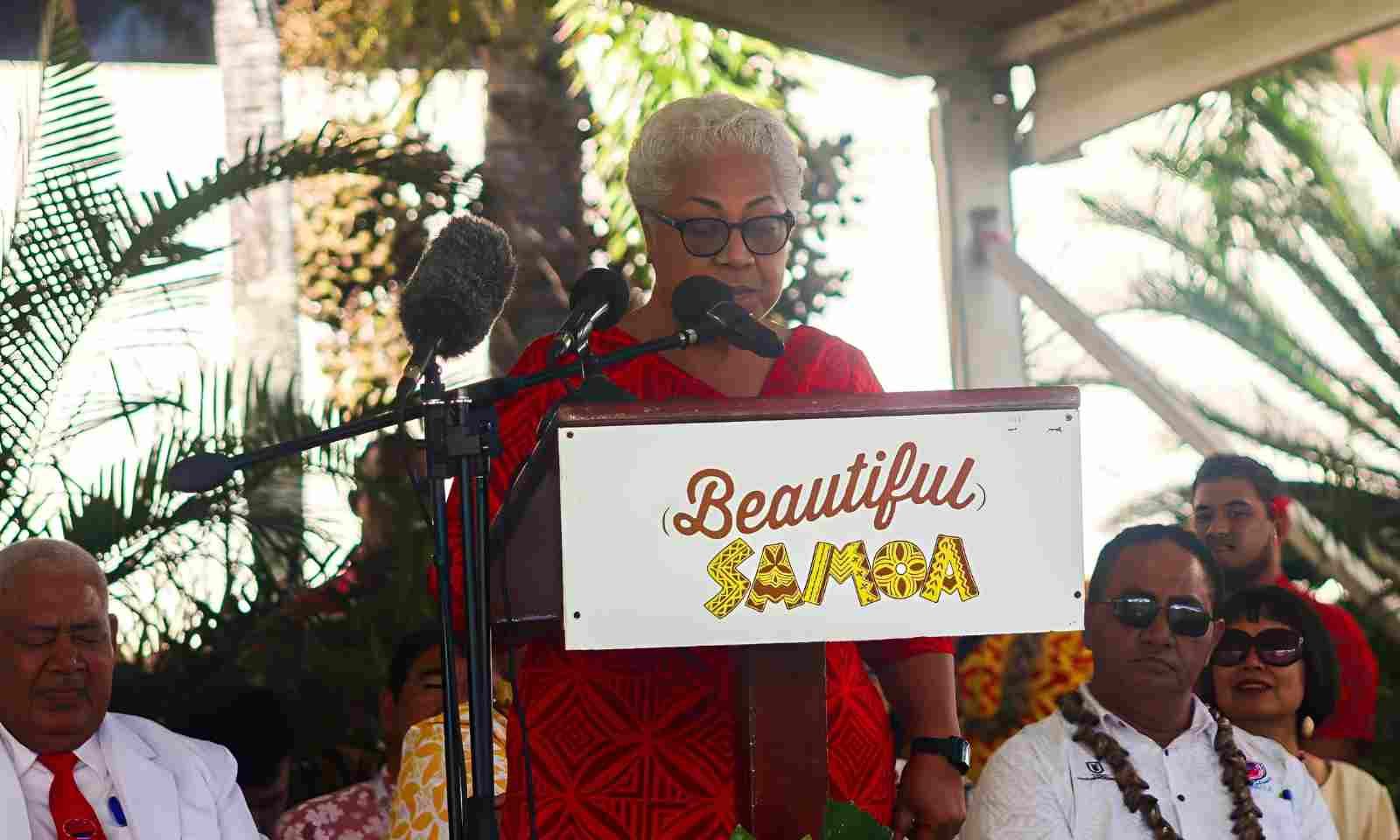
Samoa's PM Fiamē Naomi Mata'afa says Washington's withdrawal from the Paris climate agreement is "very disappointing". Photo/CHOGM
“We look to the US as a global leader, but they seem to not recognise this global issue, not only for Sāmoa but for the Pacific,” Fiamē told the Guardian.
“It’s not surprising … nevertheless, it is very disappointing. These are the forums that small countries rely on; they are critical to our voices being heard and our causes being addressed."
Papua New Guinea’s Prime Minister James Marape told local media that the US withdrawal from the Paris Agreement was “morally wrong".
“The United States has recently revitalised its relations with the Pacific, and it is very discouraging to see it backing down from climate talks, which have a direct impact on climate change mitigation for us in the Pacific,” Marape said.
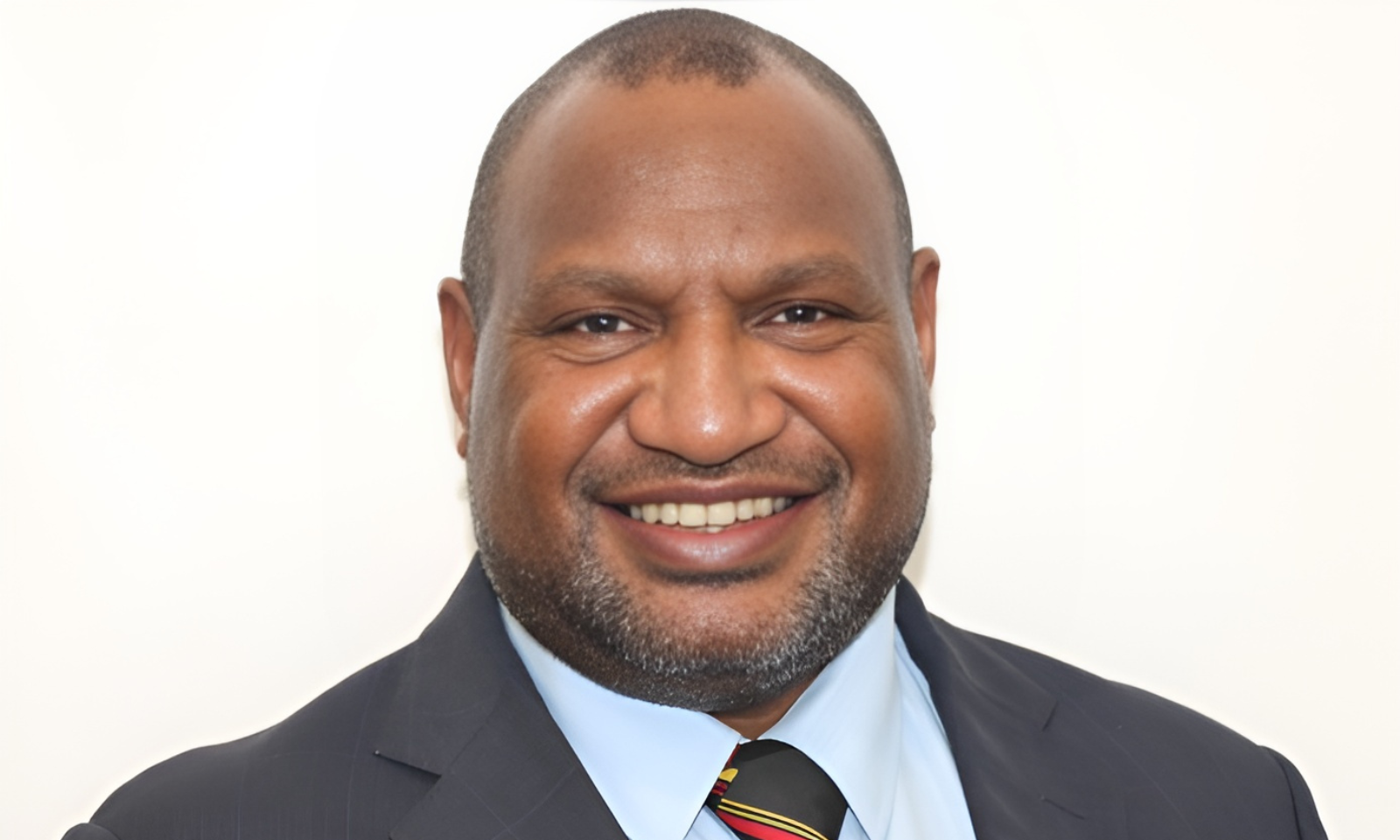
PNG's Prime Minister James Marape has asked President Donald Trump to reconsider withdrawing from the Paris Agreement. Photo/PNG govt
“We continue to be subjected to rising sea levels and unpredictable weather patterns that impact lives and economies.”
Since Trump's previous term, Newtown Cain says US engagement in the Pacific has increased dramatically.
She says new embassies have opened, Peace Corps volunteers have returned, and high-level summits have been held in Washington.
She says US officials who have engaged with Pacific leaders will understand that climate change impacts are the "name of the game" regarding regional security.
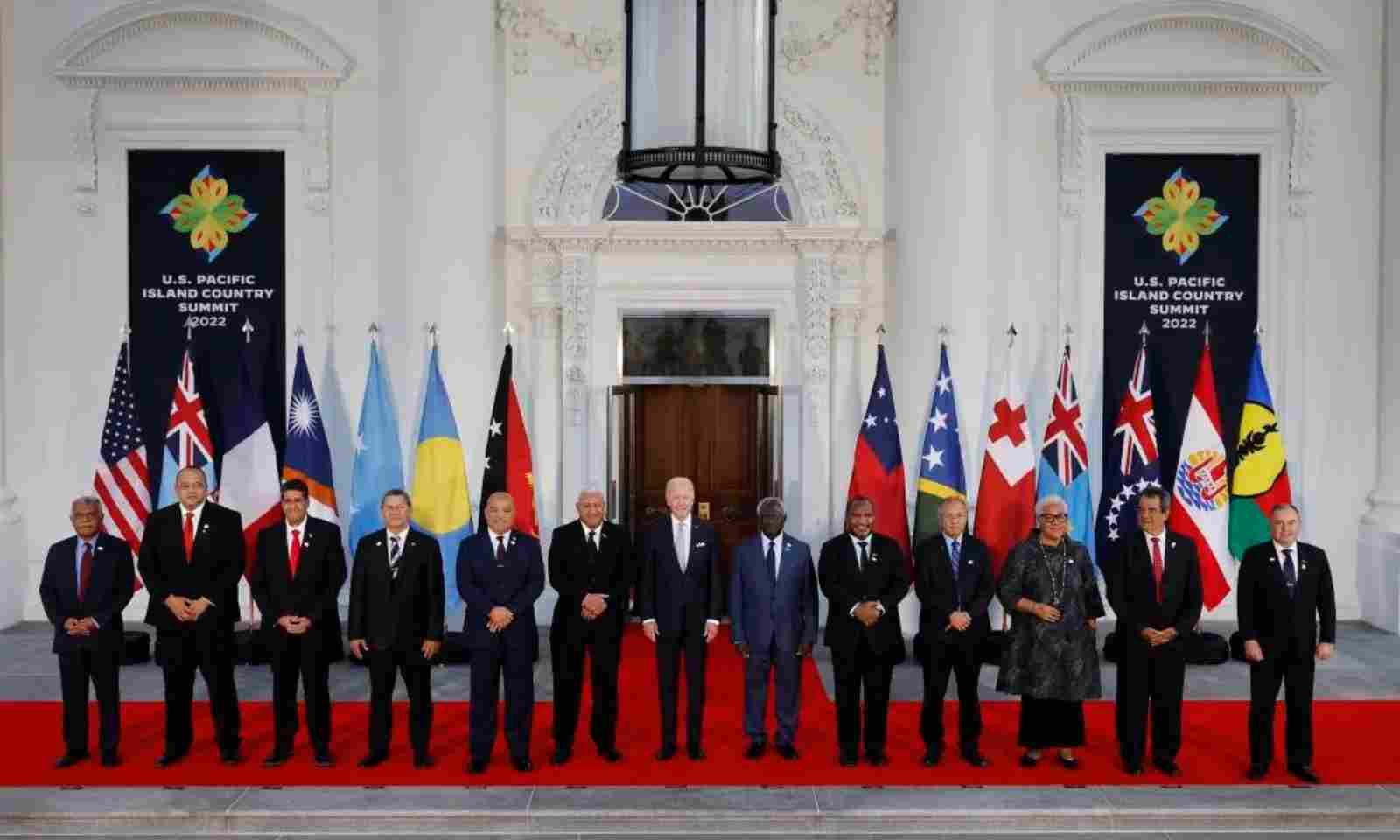
Former US President Joe Biden hosted high-level summits with Pacific leaders in Washington. Photo/US State Department
"This puts officials from the State Department and US diplomats at a huge disadvantage when it comes to trying to have meaningful conversations about security with Pacific leaders.
"This kind of on-off-again approach towards dealing with the climate crisis, providing appropriate climate finance to Pacific Island countries and others that are on the frontline of the climate crisis is not conducive to convincing a sceptical Pacific leadership that the US really is a trusted friend and is here for the long haul."
Does this give China more access and space in the region? Newton Cain believes "that's definitely a possibility".
Listen to Tess Newton Cain's full interview below.